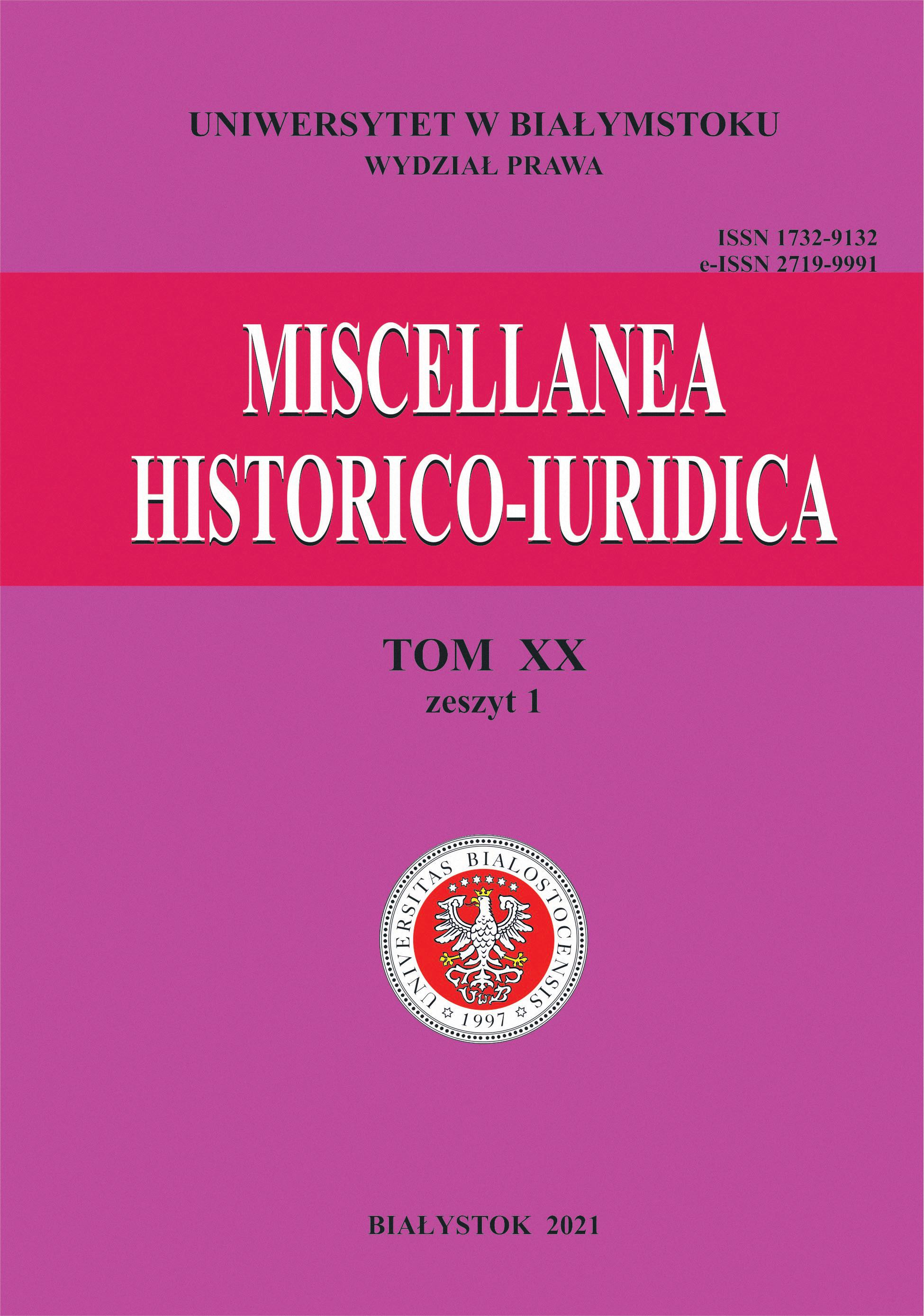Prawo czy bezprawie? O legalności wprowadzenia Niemieckiej Listy Narodowościowej na Górnym Śląsku w świetle czwartej konwencji haskiej postrzeganej przez pryzmat wykładni prawa międzynarodowego przez prawników niemieckich i polskich
Law or Lawlessness? The Legality of Introducing the German People’s List in Upper Silesia in the Light of the Fourth Hague Convention Perceived by the Interpretation of International Law by German and Polish Lawyers
Author(s): Bartłomiej MajchrowiczSubject(s): Law, Constitution, Jurisprudence, History of Law
Published by: Wydawnictwo Uniwersytetu w Białymstoku
Keywords: history; law; history of law; Polish-German relations
Summary/Abstract: In the following article, I will attempt to present the matter of the German Nationality List in Upper Silesia from three historical and legal perspectives, as well as a brief overview of how it influenced the fate of the Upper Silesians and the Polish-German relations. After a short description of the most important results of the introduction of the German Nationality List in Upper Silesia and its impact on the relations between the Polish and German people, I will present the literal wording of the Fourth Hague Convention (with particular emphasis on the third chapter including the exercise of occupation) and show an example of its use after the First World War. In the next part, I will present the Polish legal interpretation of its provisions in the context of assessing the legality of introducing the German Nationality List in Upper Silesia. In the last part, I will present the different standpoint of German lawyers to achieve my main research goal, which was to present (in a comparative way) the importance of the legal interpretation in international law – although texts of the conventions are most often formulated clearly and initially their wording does not raise any doubts in the interpreter, they create the possibility of a broad interpretation, often openly undermining the foundations of the entire international order. Although the example itself is historical, the subject of differences in the interpretation of international law is particularly important nowadays, with the advancing globalization and international integration. The article uses both the texts of legal acts (the Fourth Hague Convention and the Briand-Kellogg Pact) and their subsequent interpretations by Polish and German lawyers. In the part concerning Polish-German relations in the light of the German Nationality List in Upper Silesia, the memories of witnesses of history were also used.
Journal: Miscellanea Historico-Iuridica
- Issue Year: 20/2021
- Issue No: 1
- Page Range: 97-120
- Page Count: 24
- Language: Polish

